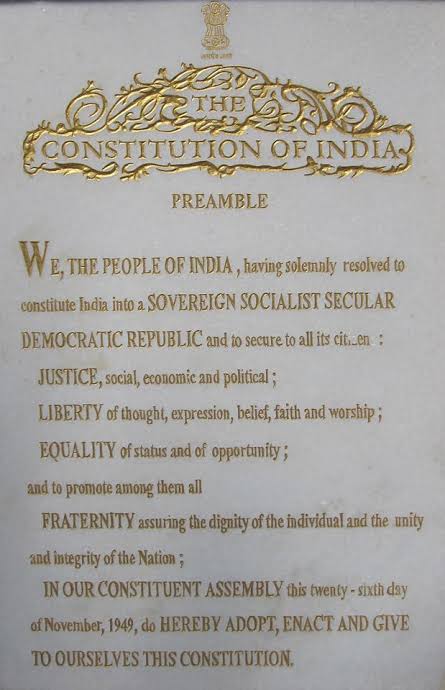
We, the people of India, having solemnly resolved to constitute India into a Sovereign Socialist Secular Democratic Republic and to secure to all its citizens :
Justice, social, economic and political;
Liberty of thought, expression, belief, faith and worship;
Equality of status and of opportunity;
and to promote among them all Fraternity assuring the dignity of the individual and the unity and integrity of the Nation;
In our constituent assembly this twenty-sixth day of November, 1949, do hereby adopt, enact and give to ourselves this constitution.
In I. C Golak Nath v. State of Punjab b(AIR 1960 SC 1643) Chief Justice Subba Rao said that “Preamble to an act sets out the main objective which the legislature is intended to achieve.
In re Berubari Case (AIR 1960 SC 845) the Supreme Court held that “Preamble was not a part of a constitution and therefore it could never be regarded as a source of any substantive powers.”
However, in Kesavananda Bharati v. State of Kerala (AIR 1973 SC 1461) the Supreme Court held that Preamble is the part of the Constitution of India.
The word Secularism, socialism and Integrity was added by the Constitution ( 42nd Amendment Act), 1976.
So, we can conclude that the Preamble is a crux of what is given in the Constitution of India.
